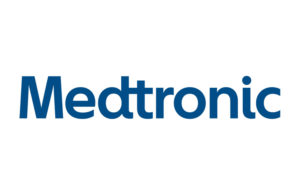 Medtronic
Medtronic
(NYSE: MDT)
stock is taking a hit after an FDA review panel found the risks of its renal denervation system outweighed the benefits.
The world’s largest medical device company engaged in more than a decade of clinical trials and research — with multiple disappointments along the way — as it made a bet that its radiofrequency-energy-based Symplicity Spyral renal denervation (RDN) would open up a multibillion-dollar market addressing hypertension. High blood pressure is a tough condition to treat, with poor medication adherence and a higher risk of heart attacks, strokes and other serious health events.
But yesterday, the Circulatory Systems Devices Panel of the FDA’s Medical Devices Advisory Committee voted 6-6 (one abstention) — with its chair Dr. Richard Lange casting the deciding vote — to recommend against FDA approval. Along with the vote over risks versus benefits, the panel voted 7-6 in favor of efficacy and 13-0 on safety.
(Here is Managing Editor Jim Hammerand’s full report on the meeting, posted on our sister site Medical Design & Outsourcing.)
MDT shares were down more than 2% to $81.93 apiece by midday trading today. MassDevice‘s MedTech 100 Index was down slightly.
“Given the vote, we think that the FDA is unlikely to approve Symplicity Spyral. And given MDT’s long and costly RDN program combined with multiple disappointments along the way (MDT acquired Ardian in early 2011 and its initial pivotal trial, SYMPLICITY HTN-3, failed in early 2014), we expect MDT to abandon RDN if it fails to obtain an FDA approval this time around,” Mike Matson, senior research analyst at Needham & Co., said in a report.
Jason Weidman, SVP and president of Medtronic’s Coronary and Renal Denervation business, said in a company news release after the panel meeting that company officials appreciated the robust conversation before the panel vote. “We will continue to collaborate with the FDA on bringing a new option to the millions of people living with high blood pressure.”
ReCor Medical and Otsuka’s Paradise system shows promise
If analysts are right, this could be the end of Medtronic’s RDN work — but the overall concept could still prove to be an effective way to treat high blood pressure. Palo Alto, California–based ReCor Medical, a subsidiary of Otsuka Medical Devices, has an ultrasound-based renal denervation system called Paradise that secured a recommendation from the FDA panel in a 10-2 vote, a day before the panel reviewed Medtronic’s device.
Recor’s clinical trial met its primary endpoint for efficacy, while Medtronic’s RDN trials have not met their efficacy target.
If the Paradise system secures an FDA PMA, it would be the first renal denervation device in the U.S. indicated to reduce blood pressure in patients with uncontrolled hypertension. Paradise already has a CE mark in the European Union.
Other analysts’ opinions about what the FDA panel vote means for Medtronic
Here is what other analysts had to say after the FDA panel voted on Symplicity Spyral RDN:
“With the onus now on the FDA to decide on product clearance, even if cleared, the question still remains whether payers will be willing to cover the therapy given the limitations to clinical efficacy relative to pharmaceutical therapies.” – Ryan Zimmerman, Sam Durno and Iseult McMahon at BTIG
“We find it more likely than not that the FDA would not approve the device at this time. … The device still could be evaluated in clinical trials going forward, but we question whether MDT will pursue these avenues.” – David Rescott, Baird